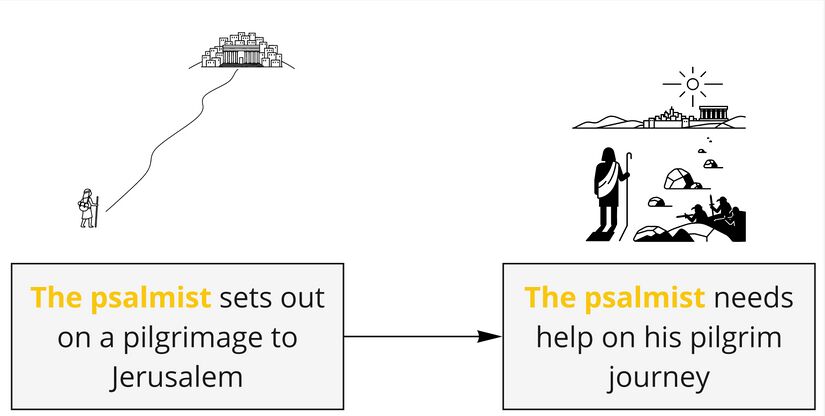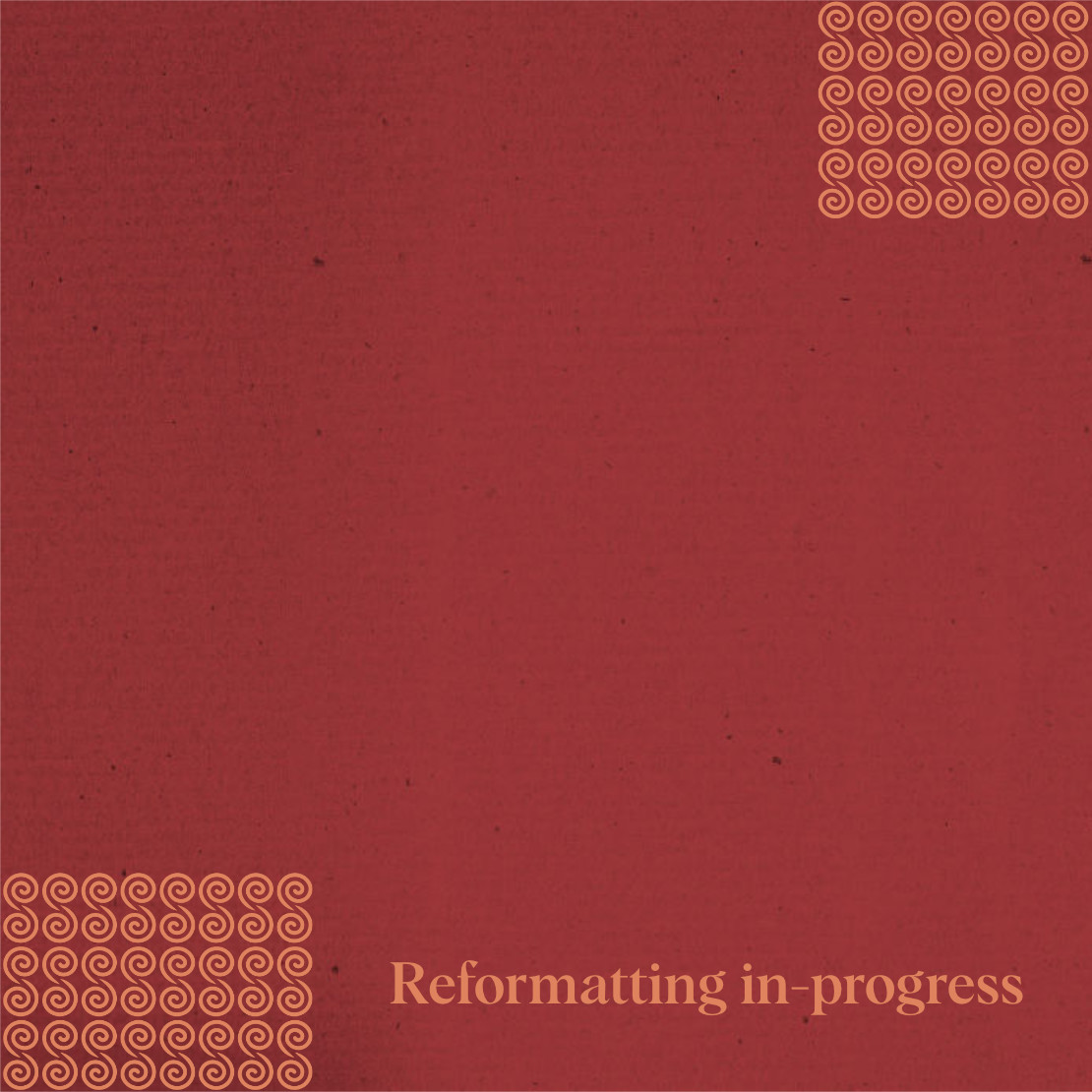Psalm 121 Overview
Welcome to the Overview of Psalm 121
This page will introduce and provide orientation to Psalm 121 as a whole. It includes the following sections:
Introduction to Psalm 121
Author
- Anonymous
Book
- Book 5 of the Psalter (Chapters 107-150)
Purpose The Purpose was the psalmist's probable intent or reason for writing this psalm.
- To encourage Israel to look to YHWH for protection.
Content The Content is a concise summary of the whole psalm's content.
- I will look to YHWH alone for help (vv. 1-2). If you follow my example, then YHWH will guard you from all harm (vv. 3-8).
Message The Message is the main idea the psalmist probably wanted the audience to remember upon or after hearing the psalm.
- YHWH is the one who guards Israel.
Psalm 121 At-a-Glance
These sections divide the content of the psalm into digestible pieces , and are determined based on information from many of our layers, including Semantics, Poetics, and Discourse. The columns, left to right, contain: the verse numbers; the main title of the section; a brief summary of the content of that section (quote marks indicate the text is taken directly from the English text of the psalm (as per our Close-but-Clear translation); and an icon to visually represent and remember the content.
| SS | Song of Ascents | |||
| v. 1 Song of the Ascents I lift my eyes toward the mountains. Where will my help come from? | My help | My help comes from YHWH, the one who made heaven and earth. |
confidence | |
| v. 2 My help is from YHWH, the one who made heaven and earth. | ||||
| v. 3 May he not let your foot slip! May the one who guards you not doze off! | Your guard | YHWH will guard you from all harm – day and night, as you come and go from now until forever. |
confidence | |
| v. 4 Indeed, the one who guards Israel will not doze off and will not fall asleep. | ||||
| v. 5 YHWH is the one who guards you. YHWH is your shade over your right hand. | ||||
| v. 6 During the day, the sun will not strike you, nor the moon at night. | ||||
| v. 7 YHWH will guard you from all harm. He will guard your life. | ||||
| v. 8 YHWH will guard your going out and your coming in from now until forever. | ||||
Background Orientation for Psalm 121
Following are the common-ground assumptionsCommon-ground assumptions include information shared by the speaker and hearers. In our analysis, we mainly use this category for Biblical/Ancient Near Eastern background. which are the most helpful for making sense of the psalm.
- Israelites would travel to Jerusalem to celebrate three annual festivals (see Exod 23:15–17; 34:23–24; Lev 23; Deut 16:1–17; cf. notes on the superscription).
- The journey to Jerusalem involved many dangers (see v. 3 [foot slipping], v. 6 [sun and moon striking as a person walked in the open], v. 7 [life-threatening harm]), so people needed "help" for the journey (see vv. 1–2) (see also Exod 34:24).
- Mountains are associated with deities (Deut 12:2; Hos 4:13; Isa 57:7; 65:7; Jer 3:6, 23; Ezek 6:2–7, 13; 18:6, 15), and so people might "lift their eyes to the mountains" in order to "find help and support there" (SDBH).
- YHWH is the one true God, "the one who made heaven and earth" (v. 2), and he alone is able to provide help from the threats of heaven (cf. v. 6) and earth (cf. v. 3).
- Life is like a journey (cf. Pss 1; 119), and so the annual journeys to Jerusalem might represent a person's journey through life.
Background Situation for Psalm 121
The background situation is the series of events leading up to the time in which the psalm is spoken. These are taken from the story triangle – whatever lies to the left of the star icon.

Participants in Psalm 121
There are 4 participants/characters in Psalm 121:
Profile List
| Psalmist |
| YHWH |
| "YHWH" (vv. 2, 5ab, 7, 8) |
| "The one who made heaven and eart" (v. 2) |
| "The one who guards you" (vv. 3, 5) |
| "The one who guards Israel" (v. 4) |
| "Your shade" (v. 5) |
| Israel(ite) |
| "Israel" (v. 4) |
| Harm |
| "slip" (lit.: "the slipping") (v. 3) |
| "the sun" (v. 6) |
| "the moon" (v. 6) |
| "harm" (v. 7) |
Profile Notes
- The psalmist is an anonymous Israelite who looks to YHWH for help and encourages other Israelites to do the same.
- The interchange between "the one who guards you" (vv. 3b, 5a) and "the one who guards Israel" (v. 4) suggests that the second-person singular addressee is Israel, or an individual Israelite representing the whole people.[1] The use of the singular instead of the plural emphasizes YHWH's protection is for each and every Israelite.
- The "antagonist" slot in this psalm is filled by all of those things that might threaten an Israelite's well-being (specifically, on his pilgrim journey to Jerusalem): "slipping" (v. 3), "sun" and "moon" (v. 6), and "all harm" (v. 7). The first reference to harm is earthly (v. 3), the second is heavenly (v. 6), and the third is all encompassing (v. 7).
- YHWH is both "the one who guards you / the one who guards Israel" (vv. 3–5) and "the one who made heaven and earth" (v. 2). As the creator of the universe, he is able to guard his people from all harm, whether earthly or heavenly.
- ↑ Cf. Baethgen 1904, 374–375; Fokkelman 2000, 272.

